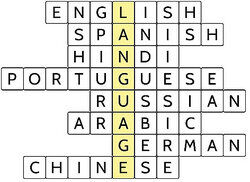Besides orthodox Moslems there are also Shi`ite sects, as well as a number of religious communities whose doctrine is the outcome of the process of fermentation that characterized the first centuries of Islam.
In the centre of the town stands Meshed (strictly Meshhed) `Ali, the shrine of `Ali, containing the reputed tomb of that caliph, which is regarded by the Shi`ite Moslems as being no less holy than the Ka`ba itself, although it should be said that it is at least very doubtful whether `Ali was actually buried there.
When he announced his divine mission Mahommed Ahmed adopted the Shi'ite traditions concerning the mandi, and thus put himself in opposition to the sultan of Turkey as the only true commander of the faithful.
But, as the power of the `Abbasids declined (see article Caliphate, ad fin.) and external authority fell in the provinces into the hands of the governors and in the capital into those of the amir al-omard, the distinction became more and more palpable, especially when the Buyids, who were disposed to Shi`ite views, proclaimed themselves sultans, i.e.
He was the leading traditionist of his time (4th Century A.H.) and one of the most outstanding traditionists of Shi'ite Islam.





